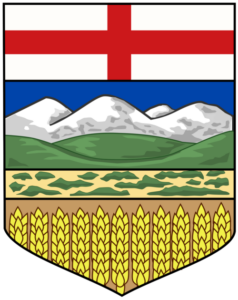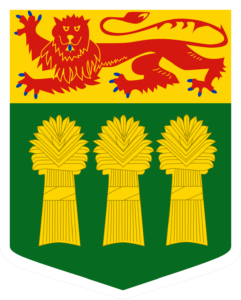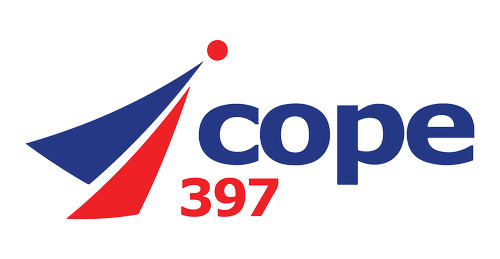 Why Join a Union?
Why Join a Union?
COPE 397 is a Canadian Union, not affiliated with any organization outside of Canada. All of your dues stay in Canada. Our Organizers can explain what a Union is all about and what steps are required to join a Union. They can provide answers to questions you might have about the benefits of joining a Union and what your employer can and cannot do.

Unionized Workplaces are Happier
The most common reason why people want a union is because there is something that is unfair about their workplace. People who are unionized enjoy greater job satisfaction because unions allow employees to negotiate the rules and policies of the workplace with the employer. A union means an end to inconsistent rules and favouritism.

Union Members Have Better Pay
Union membership allows for you and your co-workers to negotiate a fair pay system. Many union contracts provide increases to ensure that employees are fairly compensated for experience, commitment and length of service. With a union, you know when to expect a raise and how much it will be.

Jobs With Benefits
By forming a union, you can negotiate a contract with benefits that are guaranteed in writing. Benefits can include health and dental plan, vacation pay, paid sick leave, a pension plan, equal pay for work, hours of work, employment equity, family responsibility leave, dignity and respect.

Job Security
With a union contract, you can stop favouritism, and challenge unfair discipline and dismissal. Your employer can only fire you with a good reason. Having a union also allows employees to have a say when cost-cutting, contracting-out, restructuring and other decisions that are considered.

Safer Workplaces
With a union, you and your co-workers will have the support you need to fix health and safety dangers in your workplace. At COPE 397, we take workplace safety seriously. We have relayed to employers that the design of work, and how it is planned and supervised, has a profound effect on the health of employees and their environment.
 How to Join a Union?
How to Join a Union?
Your freedom to join a Union is guaranteed by the Canadian Charter of Rights and Freedoms as well as by provincial Labour Relations Codes. If you work in federally regulated sectors such as communications and transportation, the Canadian Labour Standards Code applies. The legal agency that administers these laws is called the Labour Relations Board (‘the Board’).

Contact COPE
We recommend the first thing you do is contact a COPE 397 Organizer for assistance. We have full-time staff dedicated to assisting you and your co-workers. We can offer confidential advice and support on how to proceed.

Form a Team
After speaking with us, talk with some of your trusted co-workers. What do they want to see changed in the workplace? What would make your working conditions better? Are there company practices that aren’t fair? Are complaints being treated seriously? Is it a respectful work environment? Does everything feel safe?
If you find that there are common issues that you and your co-workers would like to see addressed, it might be time to build a ‘Union Organizing Committee.’ Ideally, this team should include someone from each department and/or shifts. The Organizing Committee will learn what is legislated in their province to become certified and work to educate their co-workers.

Build a Majority
After identifying issues and establishing your team, it is time to start talking more openly. To build a majority, you and the team will ask your co-workers to sign union cards to demonstrate their support. Union cards are important because when enough cards are signed you can apply to the Labour Relations Board to be officially certified as a union.

Win the Vote
Your provincial Labour Board legally recognizes, or ‘certifies,’ unions. There are two ways Labour Boards in Canada recognize unions:
- Card Count: a certain number of cards get signed showing support for a union.
- Vote: a secret ballot shows that most employees want a union.

Negotiate a Contract
Once you have formed your union and it has been officially certified by the Labour Board, you and your co-workers can get ready to negotiate your first contract, also called a collective bargaining agreement (CBA). This means that all of the ideas you and your team collected on how your workplace could be better can finally happen.
Contact Us.
If you’re ready to start the process of unionizing, or if you have any questions about it, contact one of our organizers, below. We are here, and would love to help!
Contact → Unionizing Legislation
Unionizing Legislation
COPE 397 represents Members across three provinces and the Territories, each of which has different rules and regulations regarding the unionizing process. The following are some legislative guidelines based on location.

Alberta
In Alberta, if at least 40% of employees have signed union cards, the Labour Board can arrange a vote to be scheduled within 10 business days of the application, and vote commencing within 3 days.

Manitoba
In Manitoba, if more than 40% of employees have signed cards, the Labour Board can certify that union.

Saskatchewan
In Saskatchewan, if 45% of employees have signed union cards, the Labour Board can arrange a vote to be held.

The Territories
For workplaces in the Northwest Territories and Nunavut, if 50% of employees have signed union cards, the Canada Industrial Relations Board can certify your union.
